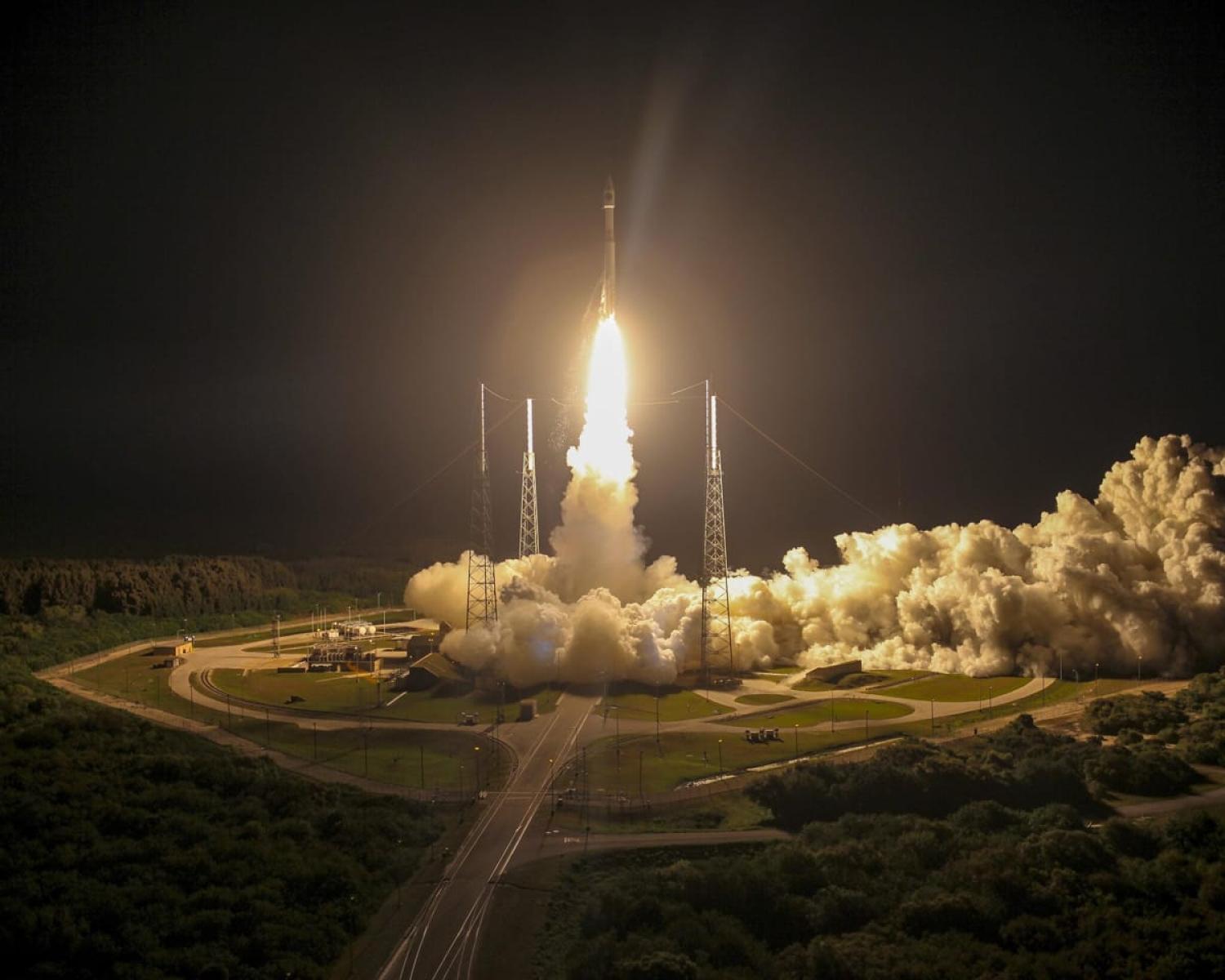The United Nations’ Women, Peace and Security (WPS) agenda reflects strong evidence that involving women in questions of peace and conflict leads to better stability. This recognition has been adapted to a wide range of settings through various Security Council resolutions. Yet space security has been largely left out of these discussions.
Conflict in space poses threats that may disproportionately affect women and girls. Indeed, conflict in space would be a “threat multiplier” to existing gender inequalities, meaning that women have fewer resources to deal with the fallout and may be exposed to greater harms resulting from disruptions to critical satellite technology in already-fragile conflict zones.
For instance, the targeted destruction of satellites – the threat of which was demonstrated by Russia’s direct ascent anti-satellite test in 2021 – may impact everything from women’s access to telecommunications to finance, navigation, disaster response and education. This would further inhibit women’s autonomy in contexts where access to critical services and rights is already limited.
Additionally, the WPS agenda reflects the need for women to be at the table at every level of security decision-making – and serve at all ranks and in all occupations in defence and security sectors. Data is hard to come by in the Australian case, with figures on gender and appointments in the Defence Space Command not yet available. However, there is reason to remain hopeful that Australia’s space security forces can break with tradition in terms of the general low representation of women in security, with Air Vice-Marshal Catherine Roberts appointed as Australia’s inaugural Space Commander. In the US Space Force, although in 2021 women represented 19.7 per cent of all employees, there is also hope that this branch of space security can be one of the first military branches built with diversity centred from the start.

If Australia seeks to promote responsible behaviours and mitigate security issues in space, then prioritising representation and embedding WPS across space security is critical to the formation of policy. Australia could have an outsized impact on space through diplomacy and gender advocacy.
While Australia’s space sector is admittedly small compared to some other developed countries, the country already wields significant influence with a gender-sensitive foreign policy. Mechanisms are in place to lead thoughtfully on the issue and Australia should seek to take advantage of momentum in the area. In the diplomatic community, Australia is known as a leading advocate of the WPS agenda and is often successful in key negotiations concerning gender. This should extend to setting sustainable and responsible space policy.
The second Australian National Action Plan on Women, Peace and Security 2021–31 builds on existing efforts to protect and promote the human rights of all women and girls, while expanding their full and meaningful participation in peace and security processes. Many of these pre-existing principles and mechanisms can and should be applied to the space security sector. Efforts to do so would also dovetail nicely with work undertaken by the Australian Space Agency, which is demonstrating leadership by committing to develop a diversity, equity and inclusion statement for the sector.
Ultimately, escalated conflicts in space are no longer just hypothetical. Top-ranking members of the US Space Force have warned about the growing prospect of a conflict in space. It is vital for Australia to incorporate WPS as a means of preventing future conflict in space and ensuring the most marginalised members of society do not disproportionately suffer the consequences of space-related conflict.
Embedding a “gender lens” to space security policies and decisions can also help ensure a space security workforce representative of Australian society. While the Defence Space Strategy sets Australia’s trajectory to 2040, Australia’s Space Command could be doing more now to improve the representativeness of its space force and consider gender questions throughout its operations. Gender and wider diversity were not specifically mentioned in the Defence Strategic Review 2023, nor is WPS, but building and training a Defence space workforce is a key priority, as is “establish[ing] frameworks within a whole-of-government and whole-of-nation approach” to space.
With dedicated attention, greater outcomes for the whole of Australia can be achieved when all of society are part of the structures and institutions that govern space. Gender-diverse perspectives in space policy and programming are crucial to maintaining and promoting responsible behaviour.
Naomi Hartanto, Sarah Furman and Isabella Vacaflores also contributed to research for this article.

